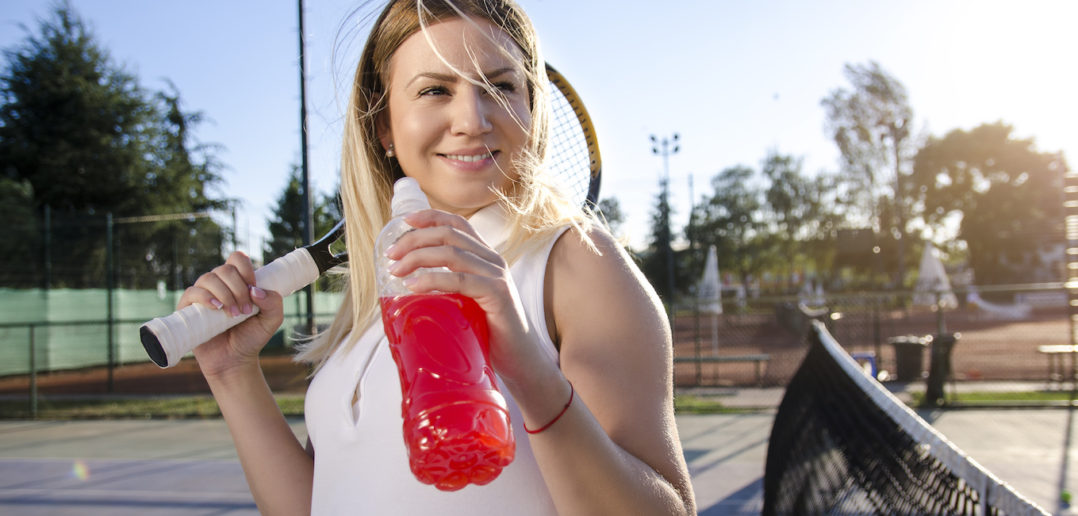Electrolyte and glucose drinks are touted as ‘healthy’ or at the very least beneficial for you and many of us consume these during gym sessions or while playing sport. The question is, how much do they benefit your performance and should you be drinking them, even post-workout?
Sports drinks are usually created with glucose (sugar or its alternatives) and electrolytes, which are minerals, such as potassium, and sodium and they work by having an impact on our muscles, central nervous system and our nerves. They definitely help with recovery. Potassium, for instance, has been shown to help with cramps from exercise, this is why bananas are popular for the same reason.
This is also the case when we exercise. Not only do we sweat and lose fluids, but also vital electrolytes. Sports drinks help us restore these electrolytes and helps us replace these minerals lost during exercise. They can also help when we have a virus which can cause a loss of fluid and essential mineral through vomiting.
For the majority of us, when we exercise or go to the gym we simply do not exercise enough to justify the use of electrolytes as we do not put ourselves under that much duress. The simple fact is, electrolyte sports drinks were designed for professional athletes who put their body through hours of stress, not someone who spends 40 minutes on a treadmill.
These drinks become less of a benefit due to the glucose and sugar (or sugar alternatives) in most electrolyte drinks which means we consume more calories and we should have done this and replaced minerals with a something more nutrient dense. In short, they could potentially make you put on weight, not lose it (if losing weight is your goal.
A report by the American Journal of Applied Physiology monitored the impact of electrolyte drinks on six healthy men competing for 60 minutes of cycling in a fasted state, and found that “small elevations in plasma insulin before exercise suppress lipolysis (fat loss) during exercise to the point at which it equals and appears to limit fat oxidation (burning fat)”. ie. the benefits of the drink were outweighed by the negatives, especially if your goal is to lose weight.
Additionally, these drinks tend to come in some pretty extreme colours which means they use artificial dyes.
While they aren’t inherently bad, electrolyte drinks are being touted as healthy drinks for the most part and this simply is not the case. However, if you are an athlete or if you perform rigorous exercise for periods of beyond an hour, you could benefit from adding electrolyte drinks into your regime. Alternatively, water will equally benefit you and your body.




